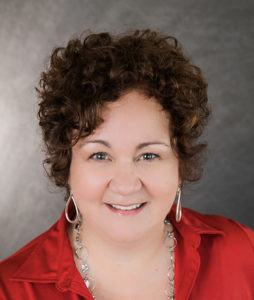
October 9-15, 2022, is recognized as Obsessive Compulsive Disorder (OCD) Awareness Week, an occasion first launched in 2009 by the International OCD Association.
When we think about OCD or any mental health disorders, many of us do not consider how it affects our senior population. But did you know many residents in long-term care (LTC) suffer with contamination OCD? While there is no cure for OCD, it can be managed through a combination of various treatments with the overall goal of improving day-to-day life.
OCD is a more prevalent psychiatric disorder than previously believed and affects 2-3% of the population, with the most common type being fear of contamination, affecting up to 46% of people. This subtype can cause paralyzing fear of getting sick from touching common surfaces or from being around others. This worry may lead to recurring thoughts of disease and/or germs which then trigger repetitive actions such as ritualistic hand washing, which then leads to social isolation as they hope others won’t notice.
The Mayo Clinic describes OCD as a neuropsychiatric mental disorder consisting of obsessions and/or compulsions which can be time-consuming for the patient and lead to debilitating anxiety. Compulsions are repetitive behaviors that the seniors and long-term care residents feel they must perform in order to alleviate the anxiety caused by the obsessions. When these unwanted yet persistent symptoms become distressful or start to interfere with their daily lives, it becomes a problem. The resident is often fully aware of their situation and inability to control their compulsive behaviors, thoughts or urges, making it even more embarrassing and distressing for them.
LTC facilities were hit hard by the COVID-19 pandemic, which brought more stringent policies and procedures to prevent the spread of illness; however, even with these positive changes, infection remains high. A study published by The American Journal of Infection Control reported up to 90% of high-touch surfaces in LTC facilities were contaminated with infectious disease-causing contaminants. Seeing others become ill can increase the stress of those with contamination OCD even higher with worry about the possibility of developing an illness themselves.
What can be done to help?
Below are several tips that LTC facilities and caregivers can do to help manage a senior/resident’s OCD:
- Refer the senior/patient to the psychiatric nurse practitioner at the facility who can psychiatrically assess the resident, identify the correct diagnosis and recommend medication(s) if appropriate. Medications that can treat OCD include antidepressants, anxiolytics and antipsychotics if warranted.
- On admission to the facility, add the OCD diagnosis to the nursing care plan. Returning to nursing basics, design a plan with priorities and goals for the resident and a pathway to obtaining those outcomes. Nurses, nurses’ aides and all direct care staff can be trained to show empathy, identify the onset of the symptoms, and help the resident recognize them. This may minimize compulsions and reduce stress.
- Refer the resident to a psychologist who can engage with them in different types of therapy and goals aimed at reducing anxiety, feeling more in control and minimizing negative thoughts.
- Cognitive behavioral therapy (CBT) to work on changing obsessive thought patterns and behaviors.
- Psychodynamic therapy helps the resident recognize their feelings and unconscious thoughts and helps them build mechanisms to cope.
- Acceptance and commitment therapy (ACT) helps patients stop struggling with these inner emotions and learn to understand and accept them, thus being able to work towards changing their automatic response.
- Family can also participate in different therapies and show support.
During this week of awareness, let’s give our seniors/residents with OCD and other mental health disorders more empathy and understanding. Yes, they sometimes need more time and attention, often more than there is time to give in an eight-hour shift.
The OCD behaviors can become bothersome as front-line care staff hurriedly go about their day trying to check tasks off their lists. Educating our staff produces awareness leading to feelings of empowerment, thus producing change and ultimately improving lives.
Sherri Perry, MHA, MSN, APRN, FNP-BC, is a healthcare content freelance writer and the Clinical Director at CHE Behavioral Health Services. She has a master’s in healthcare administration and has been a nurse practitioner dedicated to improving the quality of life and mental health of residents and employees in LTC and ALF for the past 10 years. She can be contacted at SherriPerryWrites.com.
The opinions expressed in McKnight’s Long-Term Care News guest submissions are the author’s and are not necessarily those of McKnight’s Long-Term Care News or its editors.





